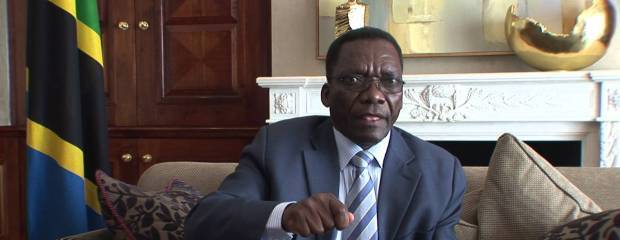Pedro Pires and the Mo Ibrahim African Leadership Prize – By Mike Jennings


Pedro Pires - former President of Cape Verde and winner of the 2011 Mo Ibrahim Prize for African Leadership
For more from Mike visit his blog
Former president of Cape Verde, Pedro Pires, has won the 2011 Mo Ibrahim African Leadership Prize. The prize is given to African leaders who have voluntarily stepped down from power, and who have demonstrated a commitment to good governance.
Pires joins former presidents of Mozambique and Botswana, Joaquim Chissano and Festus Mogae, in receiving the award, worth $5 million with an additional £200,000 each year for the rest of their lives.
Pires, like Chissano and Mogae, is a worthy recipient of the award, with Cape Verde having experienced not just sound economic growth (having recently joined Botswana in being considered a “˜middle income country’), but also a twenty year record of a multi-party democracy which has resulted in changes of ruling party (which despite the recent victory by Michael Sata in the Zambian elections, remains a rarity on the continent).
An award to celebrate examples of good leadership is a good counter to those who portray governments and leaders in Africa as unremittingly awful. But as I argued in 2008, in a comment piece for the Royal African Society on the award of the Leadership Prize to Chissano: “The notion that good leadership can be encouraged through rewards such as … the lure of hard cash and a prize seems rather weak.“
At the time, I saw three issues with the nature of the prize. Firstly, whether it could, as a tool, help improve governance in Africa. The prize money is not sufficiently rewarding to counter the gains to be made from plundering the public purse, nor is it sufficiently prestigious to offer international cachet and standing to tempt the less good onto the path of honour. Secondly, the focus on leadership ignores the constraints (domestic but especially international) on effective governance. And finally, I questioned the underlying message that the prize sent out: is it patronising to suggest that good leadership should be rewarded, rather than expected?
Have I changed my mind? Not awarding the prize in 2009 or 2010 was an important statement, ensuring it did not become seen as rewarding the best of a bad bunch, and suggesting a minimum threshold of expectation for what good leadership should look like. Moreover, it is becoming increasingly prestigious, with the announcement of the award receiving considerable media attention. Is it patronising? I’m not so sure on this any more. If the standards are rigorously applied – and the panel making the decision contains those who few would quibble over their example of leadership – and the prize is seen to go to an individual who can genuinely claim to have made a difference (i.e. it doesn’t reward just good leadership – someone who has done what any president or prime-minister should do as part of their job – but exceptional leadership), then it has merit.
Moreover, even the Nobel Peace Prize, awarded this year to Liberian president Ellen Johnson Sirleaf (surely a future contender for the Mo Ibrahim prize), Liberian peace activist Leymah Gbowee, and Yemen activist Tawakul Karman, has not been without its own share of controversy. The award to Barak Obama, on the strength of his commitments made in speeches rather than direct action at the time, looked more like a political comment on his predecessor than a genuine recognition of outstanding work towards peace and reconciliation.
But the point that the focus on a single person underplays wider constraints on effective good governance remains salient, I think. Not only does it give such prominence to a single individual, rather than recognising governance as resting upon multiple systems and layers of institutions and individuals; it also diverts attention from both a criticism of how “˜good governance’ is understood as a concept, and how international policies and processes of globalisation place limits and constraints on what any individual government can do. This is not necessarily the fault of the prize, but the prize has become the lens through which much of the media discusses and presents African leadership and governance.
The concept of good governance appears at first sight rather obvious and non-controversial. Who wouldn’t agree that tackling corruption, enabling political debate and opposition, transparency and rule of law are good things. But look more closely at how donors define good governance, and it becomes clear that “˜good governance’ is governance that supports free markets, open competition, and opportunities for foreign investment. These may not be bad things, but they are certainly not politically neutral. For many critics, good governance is part of the package of reforms to buttress neo-liberalism.
Furthermore, international trade laws and policies, reliance on donor funding, lack of real power on the global stage mean that opportunities for using government and governance as a tool for pursuing a radical alternative is limited (and even if recognised by international prizes, would not be welcomed by those who wield international clout).
So I have changed my mind, to some extent, at least. It has become more prestigious than I thought it would or could. It has not settled on second-best candidates but has had the strength to withhold the prize when no suitable person exists. In doing so, it has sought to recognise exceptional leadership – those who would be considered good leaders whichever country they happened to be leaders in. But – and it is a big but – there is a question about the underlying understanding of what good governance is and looks like. It does still contribute to a picture of African exceptionalism (even if this is not the intention of the prize, but the reaction to it). And it allows the rich world off the hook in its implicit assertion that good leadership rests upon leaders alone, not the contexts in which they seek to lead.
Mike Jennings is Senior Lecturer in Development Studies at SOAS
This piece was originally published on Mike’s blog http://mikejennings101.wordpress.com/






[…] 3.View on the recent Mo Ibrahim prize given to Pedro Pires of Sao Tome e Principe. […]